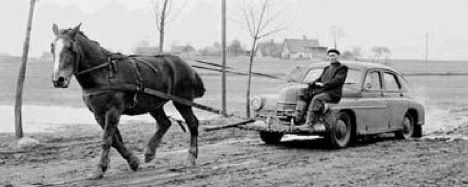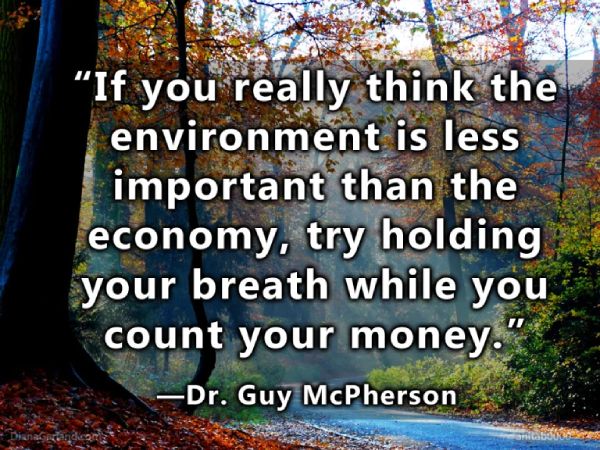It’s one thing to get sandbagged by a public health crisis – a plague being about the worst kind – and quite another for an advanced, complex economy to fall away under your feet like a freight elevator that snapped its cables. The two are now linked in the public imagination, which naturally churns out narratives to serve the collective human craving for pattern recognition.
“The news” is the net sum of all that, mixed with a lot of cognitive “noise.” Even highly intelligent people have a hard time sorting it out. The Internet is full of stories, often contradictory, charged with anger, horror, indignation, and agendas, mostly unhelpful and some quite dangerous – like the cry that China must pay for this! Uh, like how? Send them an invoice: Please remit $11.7 trillion to the address above…? Release the US Airborne over Beijing as if it were Belgium, 1944…? Drop the big one…? (They have big ones, too.)
Grievances and recriminations sprout like the skunk cabbages of April: China did it to us so they could rule the world…. The Democrats are lovin’ it cuz it’ll finally get rid of the wicked Trump…. Bill Gates is lovin’ it because the vaccine he’s working on will make him rich…! Doctors Fauci and Birx are tools of Big Pharma…! The New World Order (aka The Globalists) are using it to take away our freedom and turn us into the foot-servants of George Soros…!
Probably the biggest argument is over the seriousness of the disease itself. The statistical through-put of the moment appears to underwhelm the models the USA and Europe constructed at the onset of the plague. At least, that is, far fewer people have died, and of those, mostly the very old and those burdened with chronic illnesses – but also quite a few doctors and nurses in the prime of life. The statistical model is queered by many other uncertainties: is this really the peak? Does the plague come raging back if people go back to circulating freely? Can you catch it again? Will it return in waves next fall and spring? We have those models and pockets full of suppositions, theories, terrors.
Here’s what I think about the disease just now (subject to further evidence): it’s not just another flu. It operates differently, it’s more lethal, it affects many organs and can damage them permanently, and it spreads rapidly. That seems to have been the consensus of public health officials the world round who promoted the lockdown policy – and it’s hard to believe that they all got snookered into that. I have no idea (or opinion) whether Covid-19 was engineered, either as a bio-weapon or a good-faith science project gone awry… or whether some hapless gourmet got it at the Wild Animal Cafe.
The plague didn’t cause the economic crash. But the lockdown response certainly accelerated, amplified, and ramified it. The crash happened because we built up a hyper-complex, over-scaled, just-in-time economic system with all its ecological redundancy edited out for the sake of efficiency, making it hyper-fragile. The system’s basic power module (fossil fuel) was failing on a cost-basis and we tried to compensate for that with debt. The debt got out of hand in both sheer quantity and from the dishonest games that bankers and politicians were playing with it. All of this happened for the reason that most things happen in history: it seemed like a good idea at the time.
The old system is permanently broken now. We’re having a hard time recognizing that, plague or no plague. Many activities have flunked the scale challenge and will not come back to running the way they used to, generally anything organized at the giant scale: global supply chains, global corporations that depend on them, fracking for shale oil, big institutions like colleges and even public school systems, commercial aviation and tourism, the auto industry, show business (including the Disney empire and things like it), suburbia as a general proposition, skyscrapers and megastructures, shopping malls, pension funds, insurance companies, mega-banks, and, of course, medical conglomerates. We’re deceived by Amazon.com, which appears to be successful at the moment because it is filling a vacuum that Amazon will also eventually fall into. Amazon’s business model is a joke. The model is: every item purchased makes a separate journey by truck to the customer. That’s a “sell” signal to me.
The lockdown is making people crazy. It’s one thing to be stuck in the house with spouses and relatives you can barely stand under normal circumstances. But to see all your financial support systems melt down at the same time, along with the implications for your hopes-and-dreams, is a pretty big shock. Naturally so many want to bust out of the waking nightmare and get going, to return to action, to at least see whether what they were doing before all this happened might restart.
I dunno about that. They might flock back to restaurants to spend some of that fresh-minted $1200, and then what? Where will the next $1200 come from? Modern Monetary Theory? A new Guaranteed Basic Income? From what? From taxes paid by which businesses generating what profits from people too broke to buy goods and services? I don’t think so. Times have changed and we’re going to have to get some new good ideas that fit the new times. But, the craziness out there is very likely to start expressing itself differently as we discover the urge to action does not produce the desired result of returning-to-normal. Instead, it produces more disorder in the foundering system, and then the question is: how much disorder do we have to slog through to get to those new ideas suited to the new times?
I’ve got one of my own. The mule business! Seriously.
Author
James Howard Kunstler is the author of The Long Emergency, Too Much Magic, The Geography of Nowhere, the World Made By Hand novels, and more than a dozen other books. He lives in Washington County, New York," so says his website, Kunstler.com. He is, however, much more. During the past two decades, he has remained at the forefront of the alternative press, both online and in print, advocating against "Happy Motoring" and suburban lifestyles in favor of simpler, community-based living where people learn to rely on themselves and each other rather than corporations, government and our phony-baloney economy. His Monday and Friday Clusterfuck Nation blog gets the week off to a good beginning and closes it on a high note. He is also an accomplished painter who obviously enjoys the rural beauties of upstate New York where he has settled and detests contemporary culture's many eyesores. If this piece is your introduction to his work, check out his blog. If you know him well, support him at Patreon.







